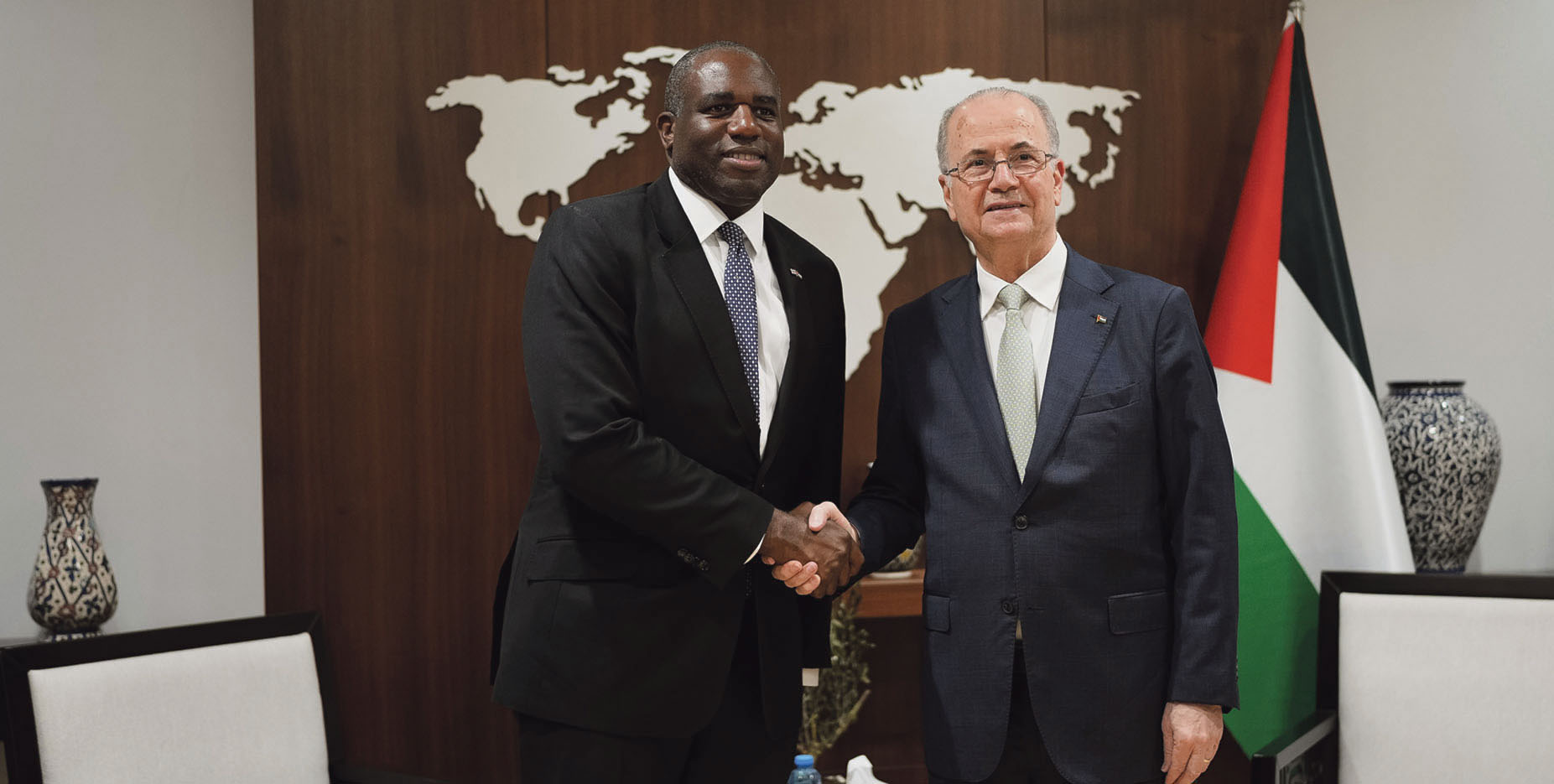
Abu Yusra Chowdhury
As the new Labour government has begun to hit the ground running with the appointment of new ministers and a flurry of decisions, it has also made important symbolic announcements regarding the situation in Palestine. The actions could be seen as a response to the loss of Labour support amongst British Muslim voters in the July 4 General Election.
At the NATO Summit on July 11, Prime Minister, Sir Keir Starmer, called for an immediate ceasefire—a call that Sir Kier and Labour had trouble issuing immediately after the October 7 attacks on Israel. Now, Starmer indicated that the UK would recognise Palestine before the US and EU, stating, “This is a right the Palestinian people have, it’s not in the gift of anyone. And so far as our policy is concerned, I’ll determine our policy, not follow anyone else.”
In the King’s Speech of July 17, at the Opening of the Parliament, government states its commitment to a ‘viable and sovereign Palestinian state.’ However, no plans were forthcoming, leading to Zara Sultana MP tabling an amendment to the Speech, calling for a ban on arms sales to Israel.
On July 12, the UK’s Ambassador to the UN hinted that the government would restore funding to UNRWA—suspended by the Conservative government—but as of publication, no confirmation has been given.
In a potentially significant move, the government appointed Richard Hermer as the new Attorney General. Hermer, a human rights lawyer, recently opposed the Conservative government’s push to ban boycott campaigns targeting the apartheid activities of the Israeli state.
He was among a small group of Jewish lawyers who wrote an open letter reminding Israel of its “international obligations” at the start of the war. Additionally, the Guardian reported that the new Foreign Secretary, David Lammy, would review and possibly drop the previous government’s obstruction of the International Criminal Court’s efforts to issue an arrest warrant for Benjamin Netanyahu over alleged war crimes in Gaza.
However, it remains unclear whether these early actions taken by Labour are enough to respond to the dissatisfaction of British Muslim voters with Labour. The decline in support is attributed to growing dissatisfaction with Labour’s stance on international issues, particularly concerning Palestine, and a perceived disconnect between the party’s leadership and Muslim communities.
According to YouGov, among Pakistani and Bangladeshi Britons—who make up a large part of the British Muslim community—41 per cent select ‘the situation in Gaza and Israel’ as one of the top issues in deciding how they will vote, compared to 18 per cent for all ethnic minority Britons and just 5 per cent of the whole public.
The 2024 UK General Election saw a notable shift in voting patterns in Muslim-majority areas, with significant consequences for the Labour Party. Traditionally a stronghold for Labour, these constituencies witnessed a marked decrease in support, with Labour’s share of the vote dropping by an average of 15 per cent
The election also saw a rise in the number of independent candidates gaining traction in these areas. Notably, Shockat Adam won as an independent in Leicester South, unseating Shadow Cabinet Minister Jonathan Ashworth.
Adnan Hussain secured a victory in Blackburn, while Ayoub Khan triumphed in Birmingham Perry Barr, and Iqbal Mohamed emerged victorious in Dewsbury and Batley. In constituencies with significant Muslim populations, several Labour MPs narrowly avoided defeat.
In Bethnal Green and Bow, Labour MP Rushanara Ali retained her seat with a slim majority of just 1,700 votes, down from a comfortable 12,000 in the previous election. Similarly, in Rochdale, Labour’s Tony Lloyd held onto his seat by a margin of fewer than 1,500 votes, reflecting the broader challenges facing the party in retaining its traditional voter base.
According to FocalData, Labour’s vote collapsed in seats with higher Muslim populations. Of their seven losses, five were in seats where over a quarter of the population was Muslim, according to the 2021 census. Other constituencies, including Ilford North and Birmingham Ladywood—represented by cabinet members Wes Streeting and Shabana Mahmood—saw their Labour incumbents narrowly hold on in the face of pro-Palestine independent challengers.
Right-wing media are already describing efforts to organise British Muslim voters as ‘sectarian,’ dangerous, and displaying shocking levels of open Islamophobia in their reporting.
Yet, similar accusations were absent when the Chief Rabbi and major Jewish organisations moved heavily against then Labour Leader Jeremy Corbyn over accusations of antisemitism. Nevertheless, defeated Labour MPs are complaining of harassment they experienced during the election campaign.
Jonathan Ashworth claimed he was chased down the streets by screaming pro-Palestinian protestors. Rushanara Ali MP complained of election abuse and death threats, though Ajmal Masroor, who almost defeated her, condemned the harassment against her and claimed to have received attacks as well.
Lord Wallney, appointed by the Conservative government to advise on political violence, wrote to the new Home Secretary and the security minister to express concern about a “concerted campaign by extremists to create a hostile atmosphere for MPs within their constituencies to compel them to cave into political demands.”
The former chair of Labour Friends of Israel published a report before the election calling for action against non-violent groups, such as climate and pro-Palestine groups, who employ strategies of disruption and lawbreaking.
Despite this loss of support, it remains to be seen whether the government or the Labour Party will engage with British Muslim concerns. Ahead of the election, commentators such as former Labour MP Tom Harris wrote in the Daily Telegraph, urging Starmer to “safely ignore” Muslim community leaders and resist pressure to adjust any of his policy positions purely to regain the votes of a minority group.
This might explain why, when asked by ITV News on July 8 whether he accepted that the Labour Party had a problem with British Muslims, Prime Minister Sir Keir Starmer chose not to respond, saying instead,“Many people who never voted Labour before, voted Labour in that general election so we now hold seats in parts of the country that have never had a Labour MP. This is an incredibly strong mandate—but, of course, wherever we were not able to secure votes, I am concerned about that. But this is a clear mandate for change.”
It is unclear whether the government’s initial messaging on Palestine will be enduring, especially as it is now almost certain the USA will see a Trump administration following an assassination attempt on the Republican presidential candidate, thus seeing an inevitable endorsement of Israeli actions against Palestinians.
More broadly, eyes will be on other Labour policies affecting British Muslims. For example, on whether the Labour Party’s endorsement of the APPG on British Muslims’ definition of Islamophobia endures in government. Moreover, many will be watching whether Muslim communities will continue to be perceived through the prism of security, as exemplified by the controversial Prevent programme.
It remains to be seen how the Labour government will engage with British Muslims. Just days before the election, now Minister Stephen Timms indicated that the Labour Party would reverse the Conservative Party government ban on engaging with the Muslim Council of Britain (MCB), the country’s largest representative body.
However, right-wing think tanks and their supportive news media have campaigned heavily for successive governments not to engage with the MCB, and instead engage with entities seemingly created in Whitehall. These organisations included Quilliam, a self-proclaimed counter-extremism organisation.
Crucially, it remains to be seen who the influencers are when it comes to impacting the lives of British Muslims. These would include Shabana Mahmood, who, as the UK’s first British Muslim Lord Chancellor, is also the most senior Muslim in government. Then there is Lord Wajid Khan, appointed Minister of State in the Ministry of Housing, Communities, and Local Government. The ministry will be a primary interlocutor for Muslim communities.
Crucially, however, will be the plethora of special advisors and unnamed figures who operate in the Labour Party orbit. Allied to that are the role of think tanks, and especially right-wing think tanks such as the Policy Exchange and the Henry Jackson Society who influenced the Blair and Brown governments on policies towards British Muslims.
Indeed, when it comes to Muslims, right-wing voices may well set the tone and tenor for the Labour government as they will want to appease an incoming Trump administration. On July 10, JD Vance, the US Republican nominee for Vice President quipped in a speech in London that the UK was the first ‘truly Islamist country with nuclear weapons’ now that Labour was in power.
The statement echoed regular far-right tropes that parts of the UK were in hoc to so called ‘Islamists’ — articulated earlier in the year by expelled Conservative Party Deputy Chair, Lee Anderson. To date, the Labour government has not issued an outright condemnation of Vance’s comments.
READ MORE | GAZA SIEGE | SPECIAL COVERAGE
Editorial: New Government, fresh promises, but little real change
Editorial: Labour’s landslide victory: a triumph in seats, not hearts
Biden Administration loses twelfth key appointee amid controversy over US Gaza policy
Israel approves the largest West Bank land grab in 30 years
Gaza toll could surpass 186,000, reports Lancet study
Comment: Architectures of liberation; inside pro-Palestine encampments at UK universities


